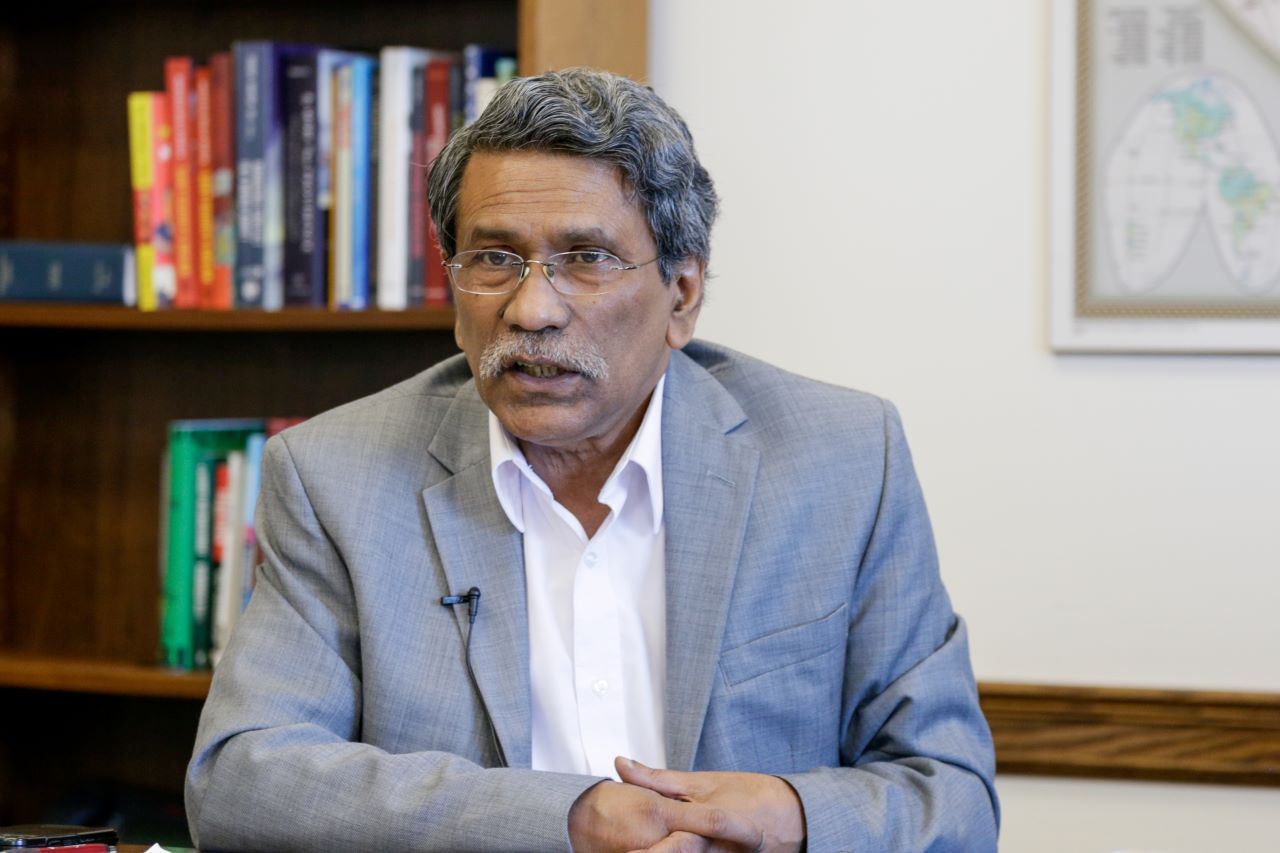Dr. Ali Riaz, the head of the Constitution Reform Commission, recently shared his perspective on the commission`s controversial recommendation to remove secularism from the proposed constitutional changes in Bangladesh.
This suggestion comes after the country`s interim government, following a student-led revolt that led to the fall of Sheikh Hasina’s government, established six reform commissions, including one focused on the constitution.
On January 15, the Constitution Reform Commission submitted its report to Dr. Muhammad Yunus, the chief advisor of the interim government.
Among its proposals, the commission recommended keeping democracy as a fundamental value in the preamble of the constitution.
It also suggested introducing principles like equality, human dignity, social justice, and pluralism while removing three guiding principles—nationalism, socialism, and secularism—and leaving only democracy intact.
The removal of secularism from the list of fundamental principles has stirred concern, with critics questioning the impact this could have on the country’s social fabric.
To understand more about the reasoning behind the commission’s stance, Dr. Riaz recently sat down with Sudha Ramachandran, South Asia Editor of The Diplomat, an international relations magazine based in Japan.
During the interview, Dr. Riaz provided a detailed explanation of why secularism was removed and why the commission continues to support the inclusion of Islam as the state religion.
When asked about the removal of secularism, Dr. Riaz argued,
“In Bangladesh, secularism has been used as a divisive tool, weaponized by authoritarian governments over the past decade. The secularism supported by previous governments was largely about tolerating religious diversity. Now, the commission has proposed pluralism, which goes further by allowing for a broader acceptance of religious tolerance. Pluralism acknowledges the coexistence of people from different backgrounds and ensures equal participation in social and political life. It won’t just address the diversity of religions like Hinduism, Buddhism, Ahmadiyya, and Bahá`í faiths, but will also include marginalized groups like Dalits and third-gender people. What’s interesting is that, despite secularism being a state policy, minority persecution has gone on without interruption for decades."
The conversation then shifted to the issue of Bangladesh’s duality in its constitution, where both ‘secularism’ and ‘Islam as the state religion’ are mentioned.
In response to this, Dr. Riaz explained,
“Islam was added as the state religion in 1988. Since then, both the Awami League and the BNP have been in power multiple times, amending the constitution eight times, but neither party has tried to remove Islam as the state religion. In an April 2024 High Court ruling, it was confirmed that keeping Islam as the state religion doesn’t cause constitutional contradictions. When we consulted with a broad cross-section of people, a majority expressed support for maintaining Islam as the state religion. We received over 50,000 opinions through our website, with most people in favor of retaining Islam in the constitution.”
He continued,
“As part of our review, we looked at the constitutions of 121 countries, including Bangladesh, and found that 19 countries have a state religion, and 75 mention ‘belief in the Creator.’ Many Western countries also recognize a state religion or give one religion special status over others.”
To further emphasize the global context, Dr. Riaz referred to a 2017 study by the Pew Research Center.
The study showed that over 80 countries support a specific religion, either by officially recognizing it or giving it preferential treatment.
The research also highlighted that 22% of the countries surveyed have a state religion, and 20% prioritize one religion over others. Dr. Riaz pointed out that Bangladesh isn’t alone in this regard.
He also clarified that even with a state religion, the relationship between the state and religion doesn’t necessarily have to be deeply intertwined.
Citing research by Jonathan Fox from Bar-Ilan University, Dr. Riaz gave examples of the UK and Iran.
Both countries have a state religion, but the role religion plays in their political systems is vastly different.
“In Bangladesh, the relationship between the state and religion will remain the same as it has been for the past few decades. As long as religion doesn’t serve as the foundation for the legal system or challenge the political and legal institutions, there’s no reason to be concerned. Often, state religions are more symbolic and have little practical impact,” ” he added.
Looking ahead, Dr. Riaz explained the next steps in the reform process.
He shared that after the reports of the six reform commissions are fully published and reviewed, the government will begin discussions with political parties.
Professor Muhammad Yunus has mentioned that a consensus commission will be set up under his leadership to facilitate these discussions.
The aim is to create a national charter that outlines the necessary reforms for Bangladesh’s democratic reconstruction.
Dr. Riaz hopes that these discussions will begin in February and lead to a clear path for implementation.
This ongoing debate over Bangladesh’s constitution raises important questions about the role of religion in governance and the balance between secularism and religious identity in shaping the country’s future.

















-20260221022942.jpg)
-20260221022827.webp)















